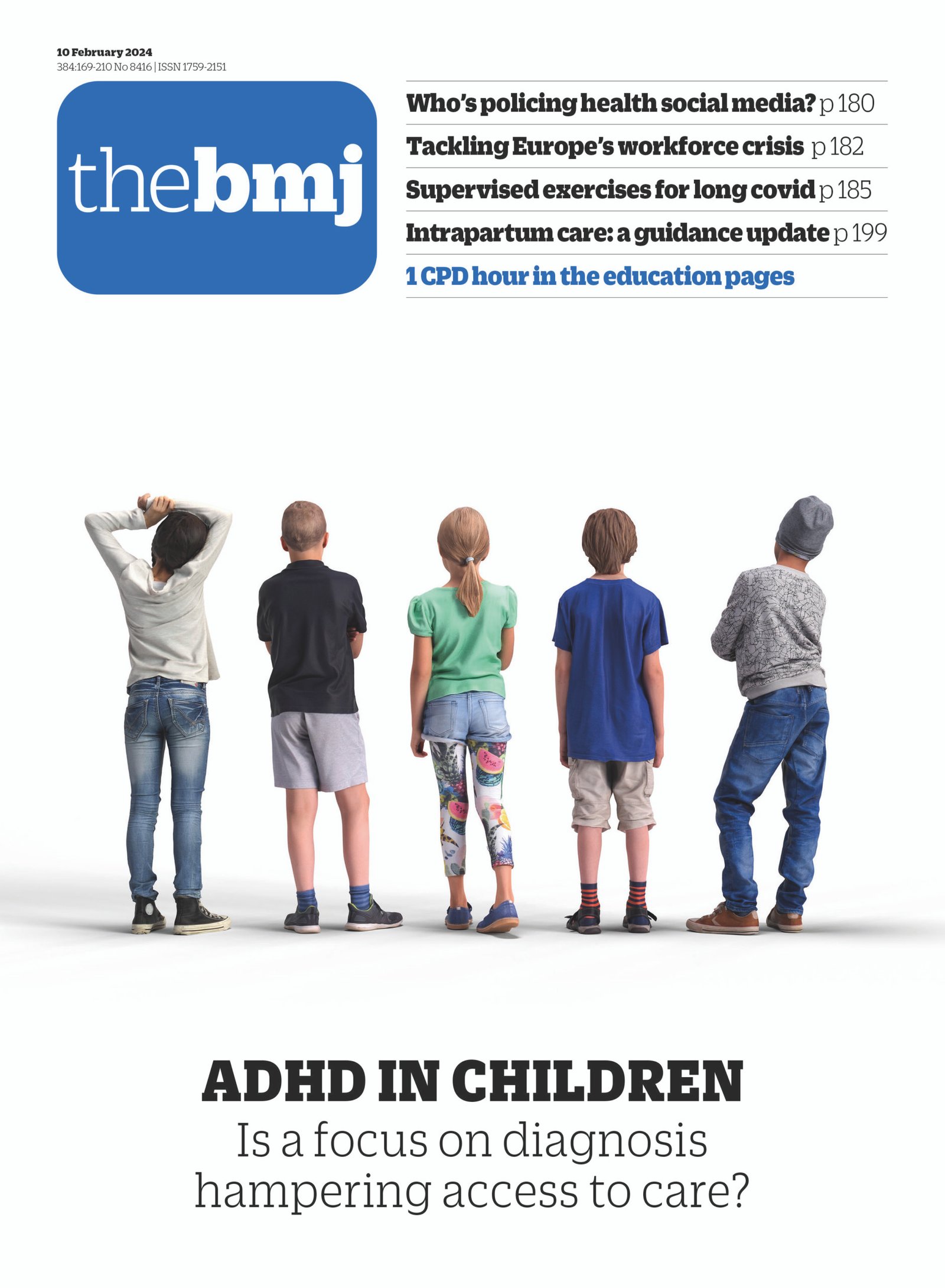- Kate E Pickett, professor of epidemiology,
- Richard G Wilkinson, honorary visiting professor
“Our country has become poor and unhealthy, where a few rich, healthy people live.” How shocking that these words are describing the situation in the UK, by most accounts the sixth largest economy in the world. Thus spoke Michael Marmot, summarising the findings of a new report from the UCL Institute of Health Equity, which found that almost one million more people died earlier in England between 2011 and 2019 than they would have if they lived in the most affluent areas of the country.1 In this general election year, it is imperative that the next UK government commits to ending austerity and tackling poverty and inequality to strengthen both the economy and the health of the public.
All governments claim to have the best interests of their citizens at heart. They want a happy, healthy population working productively in a thriving economy. But just as all parents have their children’s best interests at heart while adopting widely different parenting styles, so governments differ in their approaches to promoting the wellbeing of populations. On the political right, broadly speaking, the approach is to incentivise individual attainment, ambition, and healthy behaviour, spurring people on to help themselves to get ahead. On the left, the ideological focus is on working towards a fairer and more caring society to overcome relative disadvantage and inequities. The right sees the left as mollycoddling people who they believe should be contributing more through their labour or at least aspiring to do so. The left sees the right as harshly punishing those who are not flourishing economically.

But which approach produces the best economic and health outcomes? There is evidence that austerity fails to produce economic growth2 and a growing body of long term health data to support evidence based policy making. Three longitudinal studies focus on trends in suicide, one of the so-called “deaths of despair” (drug overdoses, suicide, and alcoholic liver disease) in relation to political regime. One study focused on the Australian state of New South Wales between 1901 and 1998, finding a significantly higher risk of suicide when both the Federal and state governments were Conservative, compared to periods with Labor governments.3 This finding was replicated for Britain between 1900 and 1991, with significantly higher suicide rates during times of Conservative government.4 A third analysis examined both suicides and homicides in the US from 1900 to 2007, finding that rates of both rise when Republicans are in the White House, and fall under Democratic administrations.5 Explanations of these patterns lie in pathways from the increases in unemployment and job losses common across these conservative administrations through loss of status and feelings of inferiority, being disrespected, and being regarded as worthless and “redundant.”
Looking beyond “deaths of despair,” under a Labour government the English health inequalities strategy, in place between 1999 and 2010, aimed to reduce the relative gap in life expectancy between the most deprived local areas and the average and reduce social class inequalities in infant mortality.6 There was a decline in inequalities in life expectancy during the period of the strategy and a rise thereafter, with the same decline seen for infant mortality inequalities.78 Child health declined in European countries that imposed more severe austerity measures following the global financial crisis of 2008910 and in the UK austerity has been accompanied by rising infant mortality11 and stalling, then falling, life expectancy.1 Clearly, the increased investment in healthcare, the early years, education, and neighbourhood renewal, which were at the heart of the strategy, were effective. Tackling inequities and reducing austerity works.
It is not, of course, just infant mortality and life expectancy that are deteriorating in Britain. Over the past four years there has been a 44% increase in the number of young adults who are unfit for work, with mental health problems accounting for around a third of the cases of young adults being signed off work for long term sickness.12 Whoever is in government, alarm bells should be ringing—population health underpins economic prosperity in both the short and the long term. Already, estimates suggest that health inequalities cost the UK economy close to £30bn a year. 13
Galvanised into action by the needs of the first world war, the British government responded to the poor health of the population in 1916 with successful mass programmes to reduce malnourishment and control tuberculosis.14 Similarly, the second world war spurred the foundation of the modern welfare state.15 Any new UK government in this election year needs to take similar bold action. Tackling the poverty and economic inequality that are creating ill health and distress is essential to drive a wellbeing transformation and it is both cost effective16 and feasible to do so. Frameworks, missions, and lists of policy solutions to reduce inequality already exist171819 and common elements they identify include the need for a comprehensive national strategy to reduce health inequalities, investment in early childhood, a focus on stable and well paid employment, tackling poverty, making taxation more progressive, and removing punitive welfare conditionality. To these we would add reducing economic inequality—the gap between rich and poor—to realise the broad health, social, economic, and environmental benefits of greater equality.
Politicians use powerful phrases when they come into office. In 1979 Margaret Thatcher claimed that “where there is discord” her government would bring harmony, “where there is despair,” it would bring hope. John Major, in 1990, promised to create a “classless society.” The current prime minister, Rishi Sunak, said he would “unite (the) country, not with words, but with action.” But what they all ignored is that large income and wealth inequalities are divisive—they promote class differences and widen health inequities. If politicians want to heal our society they can’t afford to ignore inequality and deprivation. Without those essential actions, political aspirations are just empty words.
Footnotes
-
Provenance: commissioned, not externally peer reviewed.
-
Competing interests: none.










